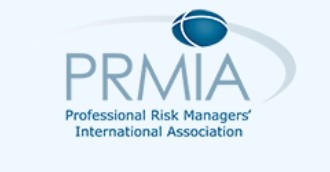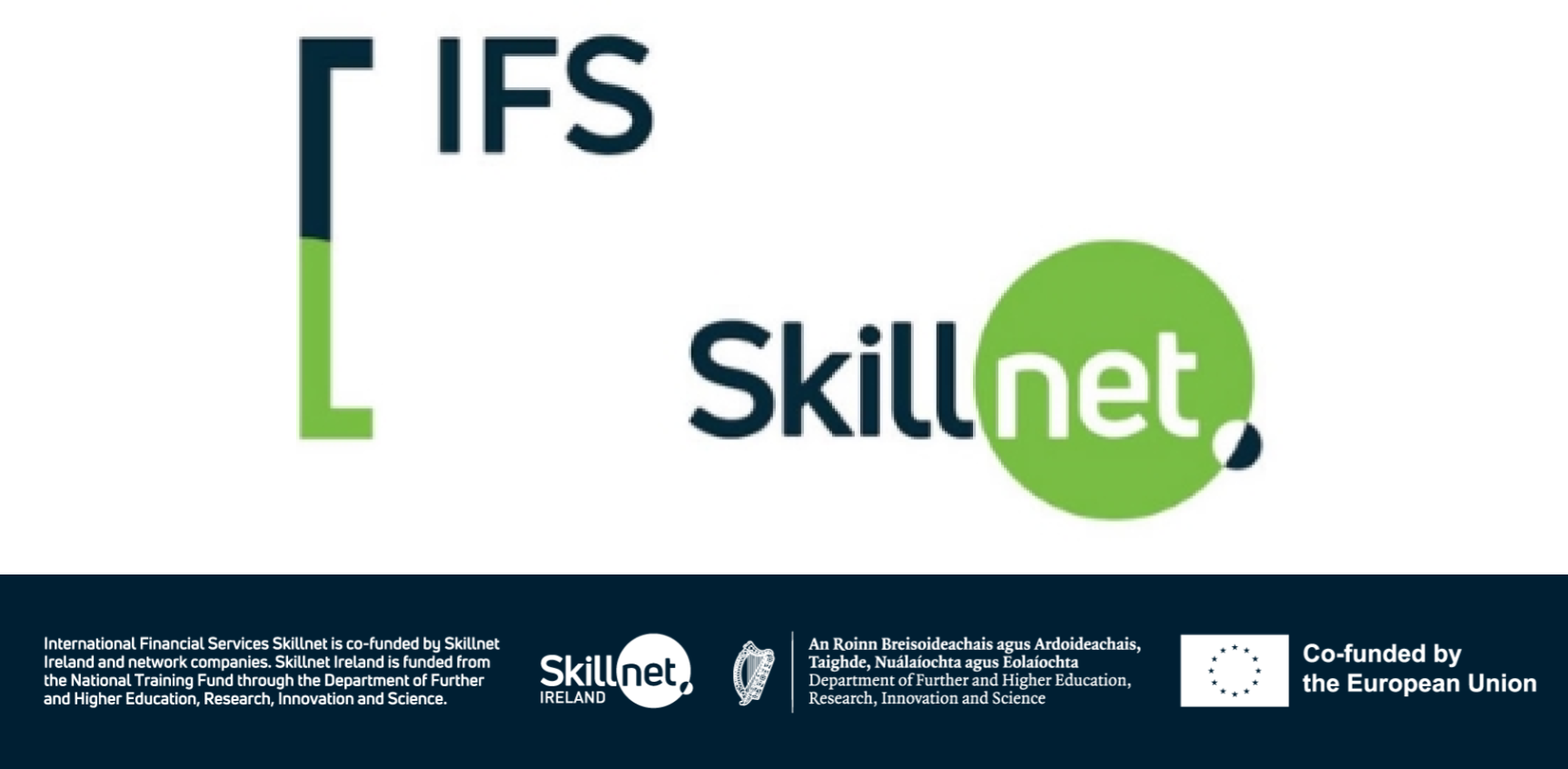University College Dublin
Express an interest
If you are interested & require further information, we will email you a copy of the programme brochure.
Before you continue...
As you are not registered with us, you will need to upload proof you can enrol to this programme.
I know, let’s sign upI have an account, let me sign in firstProfessional Diploma
Advanced Banking Risk Management
At a glance
The Professional Diploma in Advanced Banking Risk Management is the market leading, risk management programme designed specifically for senior risk management professionals who are working in roles in banking, funds, regulatory authorities and those providing risk management advisory services.
It covers a broad technical curriculum encompassing the key conceptual foundations of banking risk management and it will enable participants to think strategically in order to manage the key risks in accordance with the bank’s competitive advantages and risk appetite.
Who is it for?
Banking and financial institutions’ senior risk and compliance professionals who are members of the bank risk committees and related roles including, but not limited to, governance, risk, regulatory and liquidity committees.
Banking, financial and regulatory institutions’ senior risk and compliance professionals who are working in risk and compliance roles including;
Compliance
Credit review
Capital and credit modelling
Conduct risk
Asset and liability management
Market risk
Operational risk
Internal audit
Legal
Finance
Technology
Change management
Risk professionals working in the Central Bank of Ireland, National Treasury Management Agency, accountants, business consultants, lawyers and other professionals who provide risk management advisory services.
This programme qualifies for IFS Skillnet funding.
Funding it subject to availability

PRMIA Partnership - Global Associate PRM (APRM)
We are delighted to expand our partnership with PRMIA to our Level 9 Risk offerings.
PRMIA is a global brand in risk management education with more than 50,000 members worldwide. Over 2,400 companies employ PRMIA designates, demonstrating that employers around the world realise that PRMIA’s education programmes equip participants with the specialised knowledge and skills necessary to succeed in the dynamic banking industry. PRMIA is active in nearly every major financial centre worldwide with members in over 65 countries. ‘’The Professional Risk Managers' International Association (PRMIA) is proud to announce its continuing partnership with the IOB. PRMIA are already partnered with IOB on their level 8 Professional Certificate in Conduct Risk Culture and Operational Risk Management. Those that earn this Professional Certificate at level 8 also receive the PRMIA Operational Risk Management Certificate, allowing a global PRMIA Certificate to be added to this already outstanding IOB offering. Additionally, in relation to our Associate PRM (APRM), another PRMIA global Certificate, we are delighted to extend this partnership to IOB's postgraduate offerings, specifically the Professional Diploma in Advanced Banking Risk Management and Professional Diploma in Advanced Operational Risk Management in Financial Services programmes.’’
Justin C McCarthy, CEO, PRMIA
How you will benefit
This programme will support your professional development and provide you with;
An internationally recognised university qualification at master’s degree level from University College Dublin
At the strategic level, an understanding of the sources and nature of the key risks inherent in the banking model and the inter-relationships between those risks, the bank’s competitive advantage, capital requirements, regulatory requirements and customer imperatives
An understanding of corporate and risk governance and its relevance within the overall business context including global best practice governance standards
The current global best practice risk management approaches used by banks to identify, measure, mitigate and manage these risks in an enterprise-wide risk context
The technical risk skills and knowledge to critically evaluate and implement practical solutions to the key risk challenges facing banks’ senior management teams
An understanding of the regulatory imperatives that drive risk management in banking and an understanding of what regulators are seeking to achieve.
Continuous Professional Development
If you hold an IOB designation or a designation managed by IOB, CPD hours may be awarded on successful completion of this programme.
IFS Skillnet

This programme has IFS Skillnet funding available for certain companies. You should check if your company has IFS Skillnet approval.
Tax relief may be available to candidates who are paying fees in a personal capacity. Further information is available from www.revenue.ie.
Funding it subject to availability
Professional Diploma in Advanced Banking Risk Management - IFS Skillnet form
View the IFS Skillnet Checklist
Note: Students without IFS Skillnet funding should apply using the Apply now button above.
Fees
€4,790
IFS Skillnet member - €3,592*
Funding it subject to availability
Award
Professional Diploma in Advanced Banking Risk Management from UCD.
This is a special purpose award and a level 9 qualification on the National Framework of Qualifications.
Progression
This award is on the Pathway to MSc in Financial Services. Those wishing to continue their studies and achieve the MSc will receive the higher award only. To find out more, please visit iob.ie/programme/msc-financial-services
PRMIA and their Associate Professional Risk Manager (aPRM) global certificate
Graduates can then apply directly to PRMIA to be awarded the globally recognised PRMIA Associate Professional Risk Manager (aPRM) global certificate. Completing this programme will allow you to stand out among your peers, providing you with a competitive advantage with colleagues, clients, and prospective employers by developing the necessary skills and experience needed to succeed in today’s dynamic work environment.
Duration & delivery
Delivery is online
Assessment
Assessment is a combination of continuous assessment and written exams.
IOB programmes are largely delivered and assessed online. Students should ensure they have appropriate equipment (laptop), and that appropriate software (including MSOffice: Office and Word) is available to them to participate in the programme and related assessments (continuous assessments and exams).
Next intake
Spring Trimester - (January 2026 - May 2026)
Trimester start date
3 February 2026
When will IOB trimesters take place?
Closing dates
Application closing date - 23 January 2026
Registration closing date - 4 February 2026
What is the difference between the application and registration closing date?
Contact
For more information please contact the Programme Manager Calum Conneely at [email protected]
Modules and learning outcomes
Module is running in Autumn Trimester
Risk Governance, Culture, Business and Enterprise Risk Management
(NFQ level 9, 10 ECTS)
At the end of this module, you will be able to:
Discuss the theory and practice of enterprise risk management in the financial services sector
Describe and explain the theories of corporate governance and their evolution
Develop and propose to senior management an appropriate risk appetite framework for implementation in a financial services provider. Justify your proposal(s)
Evaluate selected international corporate governance models
Critically assess the cultural, leadership and behavioural aspects of corporate governance and the challenges facing boards in embedding a strong risk culture into financial service providers’ risk management, policies and processes
Develop the skills to independently identify, monitor and research resources on advances in ERM and corporate governance best practice.
Module is running in Autumn Trimester
ALM, Liquidity and Market Risk
(NFQ level 9, 5 ECTS)
At the end of this module, participants will understand: The role of asset and liability management. The main pre-crisis practices in liquidity risk management that led to unstable balance sheet structures. How the regulatory landscape has changed in response and the resulting new requirements. The impact of current regulatory developments on balance sheet structures. The underlying risks inherent in a balance sheet, e.g. liquidity risks, interest rate risks etc. The critical evaluation of the strategic considerations of balance sheet management under various different scenarios. Market risk, crisis and regulation. Value at risk. Derivative markets: size and turnover. Counterparty credit risk. Interest rate risk in the banking book.
Module is running in Spring Trimester
Regulatory and Economic Capital Management, Credit Risk and Pricing for Risk
(NFQ level 9, 5 ECTS)
At the end of this module, participants will understand: Capital planning and scenario planning. The different types of capital instruments. CRD IV. Risk-weighted assets. Regulatory capital. Economic capital. ICAAP and stress testing. Risk and return methodologies. Principles of credit risk management. Credit risk management framework. Credit models. Customer grading and scoring. Calculation of impairment provisions. Relevant regulation.
Module is running in Summer Trimester
Strategic Operational Conduct and Reputational Risk Management
(NFQ level 9, 10 ECTS)
At the end of this module, you will be able to:
Explain the best practice principles of non-financial risk management, covering Operational, Strategic, Reputational and Conduct Risks
Outline to senior management and staff colleagues the bespoke frameworks for the management of key risks within the operational risk family, (to include Business Continuity, IT and Cyber Risk, Fraud, Data Aggregation, Outsourcing, AML) advising them of the rationale for the key differences between each risk framework
Adapt the principles from current best practice in non-financial risk management and develop appropriate strategies for the management of emerging risks (such as those arising from Climate and Fintech)
Apply an operational risk methodology to identify, appraise, and mitigate operational risks in a financial services provider’s business model
Advise senior management on the relationship between operational risks, regulatory capital and risk-based pricing in banking and the wider financial services sector and the rational for, and application of, operational risk capital calculation methodologies
Demonstrate the learning skills to support continuous self-directed personal and professional development.
UPCOMING INTAKES
Spring Trimester (January - May)
Trimester start date - 3 February 2026
Application closing date - 23 January 2026 (Application Date | IOB Help Centre)
Registration closing date - 4 February 2026 (Registration Date | IOB Help Centre )
Summer Trimester (June - September)
Trimester start date - 8 June 2026
Application closing date - 15 May 2026 (Application Date | IOB Help Centre)
Registration closing date - 10 June 2026 (Registration Date | IOB Help Centre )
Key dates
Entry Requirements
The minimum entry requirements to the Professional Diploma in Advanced Banking Risk Management are as follows:
An Honours degree (min 2.2 L8 NFQ)
or
Admission may also be considered for experienced professionals who do not meet the admission requirements as set out above, where they can demonstrate knowledge through their work i.e. they have more than 5 years’ experience in a management role.
Professional body membership
You must be a current member of IOB, or become a member, to undertake this programme, (membership year - January to December).
For more information on the membership fee and the benefits of being an IOB member, please click here.
English Language Requirements
Teaching in IOB is through the medium of English; therefore, applicants must demonstrate a high level of competence in the English language to be admitted to study. Students whose native language is not English are required to demonstrate their proficiency in the language and must provide verifiable evidence of that proficiency. Further information on these requirements is provided in the IOB English Language Policy
Your lifelong learning partner
Join the IOB Community
Begin your journey with IOB today and unlock exclusive member content, events and insights!
Join IOB